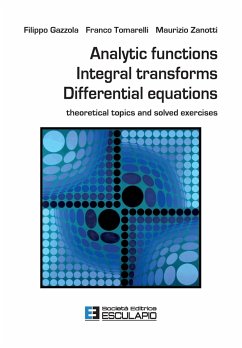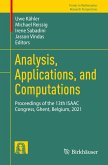Differential equations play a relevant role in many disciplines and provide powerful tools for analysis and modeling in applied sciences. The book contains several classical and modern methods for the study of ordinary and partial differential equations. A broad space is reserved to Fourier and Laplace transforms together with their applications to the solution of boundary value and/or initial value problems for differential equations. Basic prerequisites concerning analytic functions of complex variable and Lp spaces are synthetically presented in the first two chapters. Techniques based on integral transforms and Fourier series are presented in specific chapters, first in the easier framework of integrable functions and later in the general framework of distributions. The less elementary distributional context allows to deal also with differential equations with highly irregular data and pulse signals. The theory is introduced concisely, while learning of miscellaneous methods is achieved step-by-step through the proposal of many exercises of increasing difficulty. Additional recap exercises are collected in dedicated sections. Several tables for easy reference of main formulas are available at the end of the book. The presentation is oriented mainly to students of Schools in Engineering, Sciences and Economy. The partition of various topics in several self-contained and independent sections allows an easy splitting in at least two didactic modules: one at undergraduate level, the other at graduate level.
Hinweis: Dieser Artikel kann nur an eine deutsche Lieferadresse ausgeliefert werden.
Hinweis: Dieser Artikel kann nur an eine deutsche Lieferadresse ausgeliefert werden.








